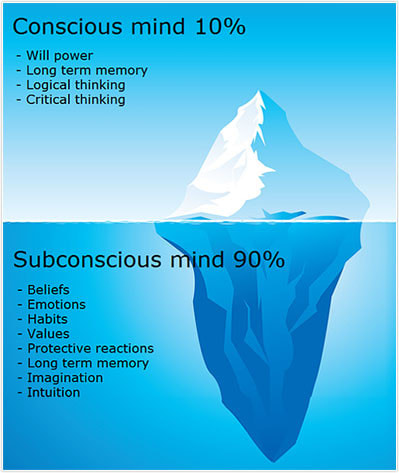|
Hypnosis is an altered state of consciousness, also described as a state of focused attention. This focus is induced by allowing a trained hypnotherapist to guide you into trance with the use of their words and voice. Hypnosis is usually accompanied by deep relaxation and is generally a very pleasant, calming and empowering experience. When hypnotised, a person will be more likely to absorb and respond to ideas and suggestions made by a therapist. These suggestions assist the person to develop new thoughts and behaviours that underlie their goals. Hypnosis can be experienced as motivating and affirming.  In this relaxed state, the client is always aware of what is happening and remains in control. They do not enter a state of unconsciousness or sleep. The process requires free-will and can be terminated at any time if the client wants. Should any negative feeling or concern arise during the experience, the trained practitioner will work through the issue and restore feelings of calm and relaxation. There are many examples of everyday, spontaneous 'trance states'. one common one is, after having driven for some time, 'suddenly' finding themselves at their destination or turn-off without consciously recalling the journey. Hypnosis is simply using this natural process of the mind to enhance wellness and quality of life. Who will I see? In our clinic, hypnotherapy is practiced by either a psychologist or clinical hypnotherapist. Each practitioner has their area of special interest and our administration staff will assess your needs and book you with the appropriate practitioner. What to expect? Hypnosis is considered an adjunct to therapy and is combined with other psychological strategies to achieve the desired outcome. Hypnosis is not a 'quick fix' for problems but will certainly strengthen and speed up recovery if the client is receptive and motivated by the practice. Clinical hypnotherapy is never conducted for entertainment or laughs. The client will never be guided to 'act like a chicken' or do anything else morally reprehensible to them. It is always conducted to assist in managing and coping with personal issues and problems that are within the competence of the therapist. How can it help? Anxiety and Stress can manifest as negative self-talk, irrational fear, physical tension, agitation, anger, sleep difficulties, tension headaches, fatigue, excessive worry, self-doubt, fidgeting, gastrointestinal problems and appetite changes all of which can be assisted with hypnosis. Research has shown that hypnosis can be effective in helping patients and clients change thoughts, attitudes and behaviours and can be ".....one of the most powerful methods for mental and physical relaxation, anxiety and stress control, in the treatment of all anxiety disorders" (Australian Society Hypnosis, 2013). Hypnosis can also assist if you want to change your behaviour, lifestyle and improve your health. It can be used to increase motivation and maintain healthy behaviours, being the extra boost that can help kick it all into gear. Clinical hypnosis can also be used to improve functioning in the following areas:
So, if you are curious to experience this natural phenomenon and want to learn how to use hypnosis in your life, contact us on 0477 516 777 for your first appointment and get the ball rolling. There is no time like the present and we are waiting to help you! Rebecca Pearce Psychologist & Clinical Hypnotherapist
0 Comments
Your comment will be posted after it is approved.
Leave a Reply. |
Categories
All
|

